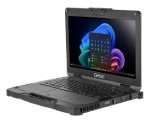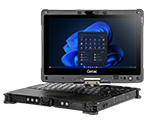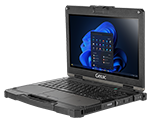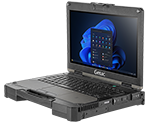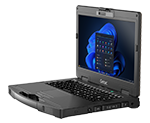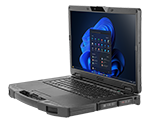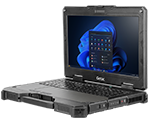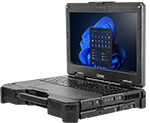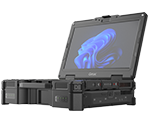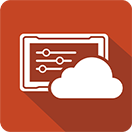How Do You Monitor a Fleet of Vehicles | Importance & Tools
Fleet monitoring is an integral component of businesses that rely heavily on a fleet of vehicles, such as transportation and delivery companies
The Significance of Fleet Monitoring
Fleet monitoring is an integral component of businesses that rely heavily on a fleet of vehicles, such as transportation and delivery companies. The ability to monitor, track, and manage a fleet efficiently can significantly impact a company's operations, resulting in improved productivity, cost-effectiveness, and safety.
To further enhance fleet safety, many companies are integrating fleet safety monitoring systems into their operations. These systems provide critical data on driver behavior, such as speed, braking habits, and adherence to traffic rules, which are essential for maintaining high safety standards and reducing the risk of accidents.
How Can Companies Track a Car-fleet?
Through GPS tracking systems, like the ones offered by Getac’s solutions, and fleet management software, technology provides a comprehensive view of fleet operations, including vehicle location, fuel consumption, maintenance needs, and driver behavior. This data allows fleet managers to optimize routes, improve fuel efficiency, monitor driver performance, and proactively address maintenance issues.
Modern fleet monitoring systems have revolutionized the way businesses oversee their vehicle operations. These systems enable real-time tracking and analysis, allowing managers to quickly identify and address issues like route deviations, unauthorized stops, or unexpected delays.
By leveraging technology in fleet monitoring, businesses can enhance operational efficiency, engage in effective fleet performance monitoring, reduce costs, ensure regulatory compliance, and ultimately deliver better customer service.
Getac F110 Tablets Keep Rail Cars, and Their Repair bills, Running on Time

The Importance of Fleet Monitoring
Fleet managers often have to deal with several challenges including maintaining driver safety, managing fuel consumption, ensuring regular vehicle maintenance, and bridging communication gaps. These issues, if not addressed promptly, can negatively impact the company's productivity, reputation, and bottom line.
Fleet monitoring, especially when enhanced with technology, can help mitigate these challenges. By providing real-time data and insights into fleet operations, managers can make informed decisions that improve efficiency, safety, and customer service.
Effective fleet monitoring brings numerous benefits. For instance, improved route planning can reduce fuel consumption and travel time, leading to cost savings. Regular vehicle maintenance minimizes downtime, reducing the chances of unexpected breakdowns. Moreover, fleet monitoring can enhance customer service by ensuring timely and reliable deliveries.
Tools and Technologies for Fleet Monitoring
Getac's Rugged Computing Solutions
Getac's rugged computing solutions are designed to improve fleet monitoring by providing enhanced navigation and tracking capabilities via GPS. This technology is built to withstand harsh environments and provide reliable service in demanding conditions.
Real-Time Fleet Communications
With Getac's 4G LTE connectivity, fleet managers can establish efficient and effective communication with drivers. This technology allows for the capture and sharing of data in real-time, thereby improving decision-making and operational efficiency.
Enhancing Driver Safety with Screen Blanking
Getac's screen blanking feature is an important safety tool that prevents distractions while driving. By blanking out screens when the vehicle is in motion, the risk of accidents due to distractions is significantly reduced, improving overall fleet safety.
Monitoring fleet activities extends beyond tracking locations; it involves analyzing various data points to ensure optimal fleet performance. This includes monitoring vehicle health, fuel usage, and ensuring compliance with environmental regulations, all of which are vital for a sustainable and efficient fleet operation.
Related solutions

Getac deployXpress®
Software | Android
This cloud-based solution streamlines the deployment, configuration, provisioning, and over-the-air updating of Getac Android devices.

Device Monitoring System
Software | Windows
GDMS tracks and monitors deployed devices, spotting potential device issues, before they impact on your field-based workforce.

Getac KeyWedge Barcode Reader Utility
Software | Windows
Scan barcode data into your application with the devices in-built rear camera. No hardware. No upgrades. No SDK integration required.

T800
Tablets | Fully Rugged | 8-Inch | Windows
The T800 has an 8.1-inch screen, a thin, ergonomic design, reliable battery life, and no-compromise rugged features.

X600
Laptops | Fully Rugged | 15-Inch | Windows
Delivering a spacious 15.6” screen and cutting-edge computing in a fully-rugged notebook chassis, the X600 enables power and productivity wherever you go.

ZX80
Tablets | Fully Rugged | 8-Inch | Android
The ZX80 8” fully rugged Android tablet is a built-for-AI powerhouse. The ZX80 puts real-time analytics, facilities management, and UAV piloting in the palm of your hands, and features extreme tolerances and a long battery life in a sleek lightweight package.
Best Practices for Fleet Management
Regular Vehicle Maintenance

Implementing a consistent schedule for fleet vehicle monitoring and regular maintenance of all vehicles in the fleet is crucial. Implementing a regular maintenance schedule, including inspections, oil changes, and tire rotations, can prevent breakdowns and ensure optimal vehicle performance.
Driver Training and Safety Programs

Ongoing fleet driver monitoring and training on safe driving practices, such as defensive driving and fatigue management, are essential. Businesses should implement safety programs that incentivize safe driving and prioritize driver safety.
Fuel Efficiency Monitoring

A fuel efficiency monitoring system can help track fuel consumption and identify areas for improvement. Strategies such as reducing idling time and improving route planning can help minimize fuel use, leading to significant cost savings.
Data Analysis and Reporting

It is crucial to monitor fleet activities by collecting and analyzing data from the fleet management system, as this is vital for making informed decisions. This can help identify trends, track performance metrics, and provide insights for improving fleet operations.
Compliance with Regulations

Ensuring all vehicles and drivers comply with relevant regulations, such as hours-of-service regulations, vehicle weight limits, and licensing requirements, is important for legal compliance and safety.
Use of Technology for monitoring

The implementation of technology solutions, such as GPS tracking, real-time communication systems, and vehicle telematics, can significantly optimize fleet management and improve operational efficiency.
Conclusion
Fleet monitoring with Getac's technology offers numerous benefits, including improved safety and efficiency. These systems provide real-time data and insights, enabling businesses to optimize their operations, reduce costs, and enhance service delivery.
As the challenges of fleet management evolve, so too should the solutions. Businesses should consider implementing technology solutions and following the best practices for fleet management. This will not only optimize their operations but also ensure they are equipped to meet future challenges head-on.
Additional resources

VGPS Utility: Get More from Your GPS Software

Getac F110 Fully Rugged Tablets Ensure Transportation Safety by Providing Real-time Video Surveillance for Lithuanian Railways

Transportation and Logistics in the Post-Pandemic Era

